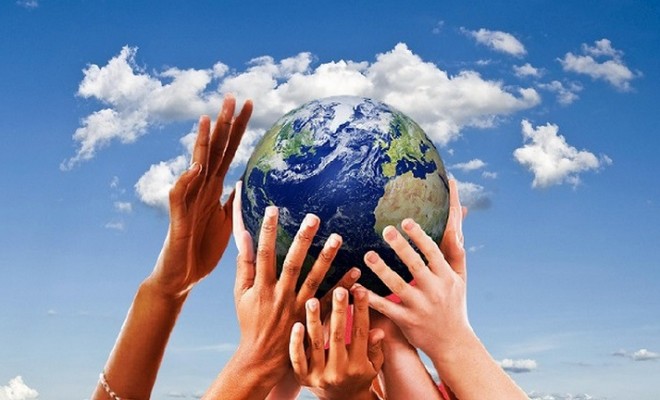
OUR LAST, BEST CHANCE ON CLIMATE
The COP26 meeting in Glasgow may usher in a new era of sustainable development
The COVID-19 pandemic showed us that human existence is fragile and perilous. However, if we do not take action now against climate change, the damage could be even greater and more lasting than the effects of the pandemic. Decisions made now are crucial in shaping the future of people and the planet. We must not go back to the old normal; it’s imperative to build back better through sustainable, inclusive, and resilient growth.
The 2018 Intergovernmental Panel on Climate Change (IPCC) special report Global Warming of 1.5°C highlighted the grave risks of global warming beyond 1.5°C, the already evident impact of climate change, and the limited time to arrest it. Projections show that more rapid and severe climate change will inflict greater harm on the environment, lives, and livelihoods. For example, warming of 2°C instead of 1.5°C would essentially wipe out all coral reefs on the planet, instead of 70 to 90 percent, and expose 37 percent of the population, instead of 14 percent, to extreme heat at least once every five years. Warming that exceeds 2°C significantly increases the risk of larger, likely irreversible environmental changes. The IPCC’s 2021 report documents the rapid acceleration of climate change, dramatically narrowing the window for limiting global warming from 2°C to 1.5°C and underscoring the imperative to reach net zero emissions by 2050.
There is a growing realization that the risks and economic costs of climate change have been underestimated. If unchecked, climate change could displace hundreds of millions of people, mostly in the developing world, increasing the potential for conflict. Likewise, carbon-intensive economies depend on jobs that may be eliminated in the future to reduce pollution and avert catastrophic climate change. Jobs and incomes will be lost, driving many into poverty, and the longer decarbonization is delayed, the more disorderly future shocks will be.
Thanks to technological advances, the cost of renewable energy is declining, making it increasingly competitive with fossil fuels. Moreover, there is mounting evidence that decarbonization does not hamper growth, development, and jobs but instead offers a path to more inclusive, resilient, and sustainable growth; indeed it can “unlock the inclusive growth story of the 21st century.”
Συνέχεια ανάγνωσης εδώ
Πηγή: imf.org




